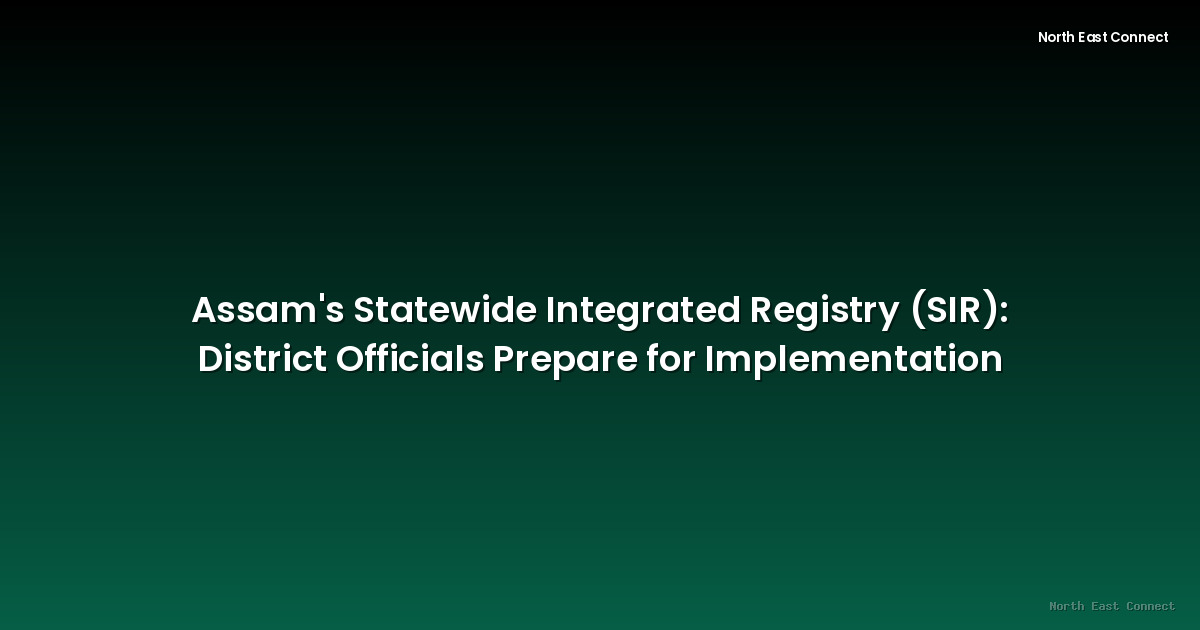2025-08-11 · News
The Assam government is gearing up for the launch of its Statewide Integrated Registry (SIR), a significant initiative aimed at streamlining and improving various government services. Recent directives from the Chief Executive Officer (CEO) to district-level officials highlight the urgency and importance placed on the successful implementation of this ambitious project. The CEO's instructions underscore the need for thorough preparation and coordination across all districts.
The Statewide Integrated Registry (SIR) is designed to create a centralized database containing comprehensive information about citizens. This includes details related to land ownership, property records, and other vital information relevant to accessing government benefits and services. The consolidation of data into a single, easily accessible platform aims to reduce bureaucratic delays, minimize paperwork, enhance transparency, and ultimately improve the efficiency of service delivery across the state.
The preparations currently underway involve several key aspects. District officials are reportedly being tasked with ensuring that the necessary infrastructure, including technological resources and trained personnel, is in place to effectively manage and utilize the SIR. This encompasses not only setting up the systems but also providing training to staff on data entry, data management, and the efficient handling of citizen inquiries related to the new system.
A critical component of the preparation process likely involves thorough data collection and verification. Ensuring the accuracy and reliability of the information stored within the SIR is paramount to its successful operation and to avoid potential issues arising from discrepancies or errors in the data. The process may require extensive collaboration with various government departments and local authorities to gather and reconcile information from existing records.
The implications of the SIR for Assam's citizens are potentially far-reaching. A streamlined system should make it easier for individuals to access government services, potentially reducing the time and effort required to obtain essential documents or entitlements. The improved transparency fostered by a centralized database could also contribute to greater accountability and reduce the incidence of corruption and bureaucratic inefficiency.
However, the successful implementation of the SIR also hinges on addressing potential challenges. Concerns about data privacy and security need to be carefully addressed to ensure the protection of sensitive personal information. Robust measures to safeguard against data breaches and unauthorized access will be vital to maintain public trust and confidence in the system. Additionally, challenges in terms of digital literacy and internet connectivity across the state may need to be addressed to ensure equitable access to the benefits of the SIR for all citizens.
The ongoing preparations indicate that the Assam government views the Statewide Integrated Registry as a critical tool for modernization and improved governance. The success of this endeavor will depend not only on the technological capabilities of the system but also on the effective coordination and training of personnel at the district level, coupled with a robust strategy to mitigate potential challenges. The next few months will be crucial in observing the progress of the implementation and assessing the initial impact of the SIR on the citizens and governance of Assam.







